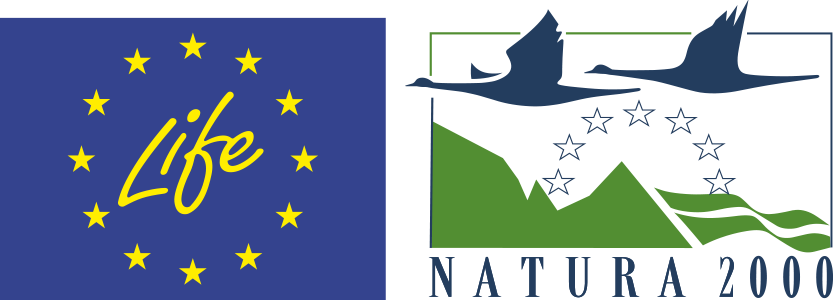NEWS
Closure of the European LIFE AdaptaBlues project, coordinated by IHCantabria
This project stands out for its innovative approach, emphasizing the conservation and restoration of estuarine ecosystems to achieve adaptation to climate change in coastal areas of the European Atlantic
The Environmental Hydraulics Institute of the University of Cantabria (IHCantabria) celebrated today the closing ceremony of the European project LIFE AdaptaBlues project, with a public event in which its main results were presented, among which the important role of the conservation of estuarine ecosystems as an element of mitigation and protection against the effects of climate change (CC) on the coasts stands out.
The closing ceremony took place this morning at the IHCantabria Auditorium. It was attended by members of the LIFE AdaptaBlues project consortium, researchers from IHCantabria and representatives of the European projects LIFE Insular, LIFE Garachico, LIFE Dunas, REEForest LIFE, LIFE CAPEable and NBRACER, who participated ─both in person and online─ in a workshop that promoted an interesting debate on the need and challenges of implementing Nature-based Solutions (NBS) as coastal adaptation measures.
Within the framework of this event, IHCantabria’s Research Director, Íñigo Losada, presented a keynote lecture entitled “Recent contributions of IHCantabria to coastal adaptation”. IHCantabria’s Director of Education and Capacity Building, José A. Juanes, reported on the background and important characteristics of the LIFE AdaptaBlues project. The main results were presented by María Recio Espinosa (who has been coordinating the development of this project at IHCantabria), Saúl Torres Ortega (researcher at IHCantabria), Joao Neto, representing the Politécnico de Leiria, and Max Ricker, from The Nature Conservancy. The Nature Conservancy.
The LIFE AdaptaBlues project, co-funded by the European Union’s LIFE program, focused on demonstrating how the conservation and restoration of estuarine habitats can be CC adaptation measures in coastal areas of the European Atlantic. Its development started in 2019 and included actions in three European regions: Coimbra (Portugal), Cantabria (Spain) and Zeeland (The Netherlands).
This project has been aligned with the European Union’s Climate Change Adaptation Strategy and has promoted the implementation of green infrastructure and NBS. This approach contributes to the integration of ecosystem conservation into CC adaptation plans at local, regional and national levels. It therefore highlights the crucial role of estuaries in coastal protection, acting as natural defenses against erosion and flooding.
Among the key results of this project is the development of standardized tools and protocols for the assessment of estuarine ecosystem services, including coastal protection, carbon sequestration and analysis of estuarine resilience to the effects of CC. One of its most outstanding achievements has been the implementation of a pilot project in the Mondego estuary, in Coimbra, where estuarine habitat restoration actions were applied to reduce erosive processes and favor the resilience of natural ecosystems.
Based on the analysis of international experiences in oyster reef restoration, on the knowledge and experiences previously acquired by this institution (with the implementation of the LIFE CONVIVE project, between 2015 and 2020, and before this period) and on the concept of flood insurance, IHCantabria explored the application of innovative financial mechanisms, to finance environmental restoration actions. Another priority was the transfer and replicability of the project’s actions, through knowledge networks and the execution of the ADAPTA BLUES training itinerary, whose second edition ended last June and whose third edition is scheduled for January 2025. This training itinerary is made up of three MOOCs, which can be registered for free through the Training Portal ECCE-IH and the website of the Group 9 of Universities (G9), under the coordination of the University of Cantabria. In the future, IHCantabria will continue to contribute to the analysis of the issues addressed in the LIFE AdaptaBlues project.
Importance of estuarine ecosystems
In addition to serving as carbon sinks, estuarine ecosystems provide multiple services, such as sustaining fisheries, maintaining biodiversity and recreational resources. On the Atlantic coast of Europe, these ecosystems have been historically degraded by humans, which has reduced the contribution of their services, hence the formulation of the LIFE AdaptaBlues project.
This European project involved several partners, such as The Nature Conservancy, the Polytechnic Institute of Leiria and the Municipality of Figueira da Foz. During its execution, research personnel from these partner organizations contributed to raising public awareness of the importance of conserving estuarine ecosystems to mitigate and adapt to the effects of CC on the coasts.
With the culmination of the LIFE AdaptaBlues project, IHCantabria reaffirms the importance of NBS to face the challenges of CC in coastal areas, as they provide a replicable and sustainable model for future initiatives.
More information about the LIFE AdaptaBlues project, through the following link: https://lifeadaptablues.eu/es/project/
You can access the videos of the closing ceremony of the European project LIFE AdaptaBlues on:





